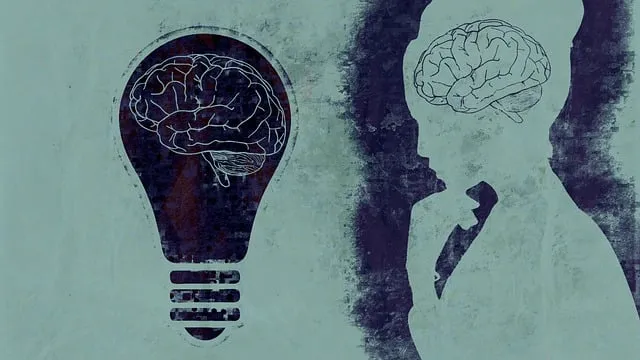The Kaiser Permanente behavioral health center in Greenwood Village uses advanced analytics and data-driven care to tailor interventions and optimize outcomes for patients. Through structured assessments, surveys, and counseling, they gather comprehensive mental health data, enabling personalized training and evidence-based practices like emotional intelligence and social skills development. This strategic approach enhances service efficiency, ensures tailored support, and contributes to a nuanced understanding of community mental health needs. By analyzing trends and patterns, healthcare professionals develop effective treatment strategies, continually improve care protocols, and ultimately enhance patient well-being.
Mental health data analysis has evolved, especially within healthcare giants like Kaiser Permanente. This article explores how the organization’s behavioral health centers in Greenwood Village leverage data to improve patient outcomes. We delve into understanding complex mental health datasets, effective collection methods, and powerful analysis techniques. Through trend identification and result interpretation, these centers are revolutionizing care, tailoring treatments, and enhancing overall well-being for their patients.
- Understanding Mental Health Data at Kaiser Permanente
- The Role of Behavioral Health Centers in Data Collection
- Analyzing Trends: Uncovering Patterns in Patient Outcomes
- Interpreting Results: Informing Treatment Strategies
- Enhancing Care with Advanced Data Interpretation Techniques
Understanding Mental Health Data at Kaiser Permanente

At Kaiser Permanente’s behavioral health center in Greenwood Village, understanding and interpreting mental health data is a cornerstone of their comprehensive care approach. The center leverages advanced data analytics tools to gain profound insights into patient populations, enabling them to tailor interventions and optimize outcomes. This strategic utilization of data not only enhances the efficiency of services but also ensures that every individual receives personalized support aligned with their unique needs.
Through the Mental Wellness Podcast Series Production, Kaiser Permanente focuses on enhancing emotional intelligence and promoting social skills training among its members. By closely examining patient journeys, demographics, and treatment responses, the center identifies trends and patterns that inform evidence-based practices. This data-driven approach contributes to the ongoing evolution of their programs, ensuring they remain effective and relevant in addressing contemporary mental health challenges.
The Role of Behavioral Health Centers in Data Collection

Behavioral health centers play a pivotal role in mental health data collection and analysis, offering a wealth of insights into community well-being. As seen with Kaiser Permanente’s behavioral health center in Greenwood Village, these facilities serve as hubs for gathering comprehensive data on various aspects of mental wellness. Through structured assessments, surveys, and one-on-one counseling sessions, they capture valuable information about individuals’ emotional states, stress factors, and coping mechanisms. This includes trends in common mental health disorders, the effectiveness of treatments, and barriers to seeking care – all crucial for informed decision-making.
By integrating innovative practices like conflict resolution techniques, mental wellness journaling exercise guidance, and self-care routine development, behavioral health centers enrich data collection. These approaches not only facilitate accurate diagnosis but also provide actionable insights into strategies that promote resilience and overall mental health. The data collected contributes to a nuanced understanding of population mental health needs, guiding the design of targeted interventions and policies for better community well-being.
Analyzing Trends: Uncovering Patterns in Patient Outcomes

Analyzing trends in mental health data offers valuable insights into patient outcomes at centers like the Kaiser Permanente behavioral health center in Greenwood Village. By examining patterns over time, healthcare professionals can uncover significant information about what works and what doesn’t in treating various conditions. For instance, tracking rates of successful coping skills development or inner strength development among different demographics can reveal effective interventions tailored to specific needs.
This process also facilitates the assessment of mood management strategies, identifying which techniques are most beneficial for certain patient groups. Such data-driven insights empower mental health specialists at Kaiser Permanente Greenwood Village to make informed decisions, continually improve care protocols, and ultimately enhance overall patient well-being.
Interpreting Results: Informing Treatment Strategies

When analyzing mental health data from a place like the Kaiser Permanente behavioral health center in Greenwood Village, interpreting results accurately is paramount to informing effective treatment strategies. This involves meticulously examining trends, patterns, and correlations within the data set, paying close attention to key indicators of mental well-being and distress. For instance, a notable rise in anxiety or depression rates among certain demographics could signal the need for tailored interventions, such as those promoting Compassion Cultivation Practices.
By integrating insights from data analysis with evidence-based approaches like Crisis Intervention Guidance and Emotional Healing Processes, healthcare professionals can develop more personalized treatment plans. This data-driven approach ensures that resources are allocated efficiently, focusing on high-impact strategies while continuously evaluating their effectiveness. Such an informed, adaptive approach ultimately fosters better outcomes for individuals seeking support at the Kaiser Permanente behavioral health center in Greenwood Village and similar facilities.
Enhancing Care with Advanced Data Interpretation Techniques

At the Kaiser Permanente behavioral health center Greenwood Village, advanced data interpretation techniques are revolutionizing care delivery. By leveraging sophisticated analytics, mental health professionals gain valuable insights into patient populations, enabling them to personalize treatment plans and enhance therapeutic outcomes. This data-driven approach not only improves individual patient care but also allows for more effective resource allocation within the healthcare system.
Through innovative strategies like predictive modeling and sentiment analysis of patient narratives, communication strategies can be tailored to meet specific needs. For instance, identifying at-risk individuals through risk assessment algorithms helps mental health professionals proactively implement interventions. Moreover, data interpretation aids in understanding the effectiveness of various therapeutic modalities, boosting confidence among care providers and ultimately improving patient satisfaction and mental health outcomes.
Mental health data analysis is a powerful tool for improving patient outcomes, and the integration of advanced techniques by organizations like Kaiser Permanente’s behavioral health centers in Greenwood Village sets a precedent for enhanced care. By understanding trends and patterns within patient populations, healthcare professionals can inform more effective treatment strategies, ultimately fostering better mental well-being. This comprehensive approach to data interpretation is revolutionizing care, ensuring that each individual receives personalized support tailored to their unique needs.






